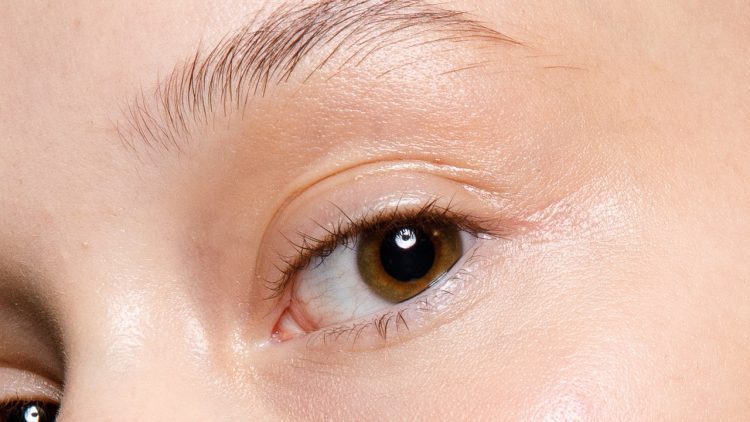It’s great for dandruff, too. Remember those antibacterial and anti-fungal properties we mentioned before? They also make ACV a useful natural remedy for flakes, which “can be exacerbated by yeast [a type of fungus] on scalp skin,” according to Dr. Camp. “[Overall, it can] promote a healthy scalp by [targeting] dead skin cells that contribute to dandruff, thereby reducing flakes and helping you get back to wearing black shirts again,” he says.
There are a few more benefits the acids in ACV can have for your crown: “It helps seal the hair cuticles, maintains hair color, increase shine, reduce frizz, plus it can soften and strengthen the hair shaft, too,” Dr. DeRosa adds. It’s also, to that end, safe to use on color-treated hair.
What are the risks of using apple cider vinegar?
Before you reach for the nearest bottle of Bragg, fall back a little. While ACV is generally safe to use at home, “be careful since it is an acid,” Dr. DeRosa warns. If you’re a newbie or have sensitive skin, test things out by starting with a wash-off treatment, especially if you’re using it in its raw, natural form. “It’s best to rinse off after 5 to 10 minutes for the first few weeks of use on skin,” Dr. Ciraldo advises.
If you’re using ACV straight, we beg: dilute it with water before applying it anywhere on your body. “The risks of using ACV are mainly those related to using too high of a concentration, so it’s possible to get a chemical burn [when it’s used improperly],” Dr. DeRosa explains. Be sure to do a patch test first to make sure you’re not naturally sensitive to it. If you’re allergic to the malic acid in apples, for instance, you could have an unexpected reaction to it.
Ciraldo and all the other dermatologists we spoke to say that much like other chemical exfoliants, you have to be mindful of the other products in your routine when you use ACV. If you combine them with other acids or even retinol, there is the potential to irritate your skin. Skip the scrubs, too, if you plan to use ACV at any point in your routine.
It is very possible to overuse it, so, as we mentioned before, be sure to give your skin a break in between ACV treatments. Otherwise, you might miss out on all those lovely benefits. “Overuse could potentially lead to dry, red, itchy, irritated skin,” Dr. Camp says. “Similarly with hair, overuse may cause scalp skin irritation or frizz by removing too much of the oil that normally coats the hair shaft.”
Source by www.allure.com


